The term “influencer marketing” is often associated with lifestyle influencers promoting products such as makeup and shoes to consumers. Should such influencers also promote cybersecurity platforms, employee training services, or corporate lease accounting software?
Yeah, probably not. To be fair, the B2B tech brand, the influencer, and their followers would all be displeased with such promotions!
The proper match between influencer and brand is vital. But is the concept of influencer marketing a fit for B2B brands?
B2B influencer marketing is growing, consistent with the common pattern of marketing practices becoming widespread in B2C before expanding to B2B. Despite this growth, many misconceptions around B2B influencer marketing still persist. We’re highlighting the most common myths and debunking them with the facts, so you can consider adding this impactful, effective marketing tactic to your mix.

Myth #1: Influencer Marketing Drives Emotional, Impulse Buys & is Therefore Irrelevant to B2B
B2B buyers are making decisions that impact the future of their careers. While consumers might seek approval and validation from friends, B2B decision-makers desire the approval and validation of their professional peers.
Thomas Ordahl, chief strategy officer, of Landor Associates, states, “B2B buyers are making decisions every day that can change their careers. That’s inherently emotional – more than we even like to admit.” 71% of buyers who see a personal value in a B2B purchase, will end up buying the product/service.
While B2B purchases are often less impulsive than B2C, it’s still important for sellers to tap into buyers’ emotions while building trust. Interpersonal connections are particularly vital. “92% of B2B decision-makers trust a person more than a brand even if they don’t know the person.”
Myth #2: B2B Decision Makers Don’t Pay Attention to Influencers
This myth persists because of a common association with the term “influencer” with people like Kim Kardashian. Sure, people aren’t consulting beauty influencers when selecting a cloud computing provider. But B2B decision makers do consult a variety of subject matter experts.
According to Forrester, B2B buyers go everywhere for information. “They talked to peers, industry experts, and various provider representatives to get their specific questions answered. They also did a lot of self-directed research checking all sorts of sources, from social media to syndicated content to category- or industry-specific resources.”
As Nielson stated further in its report, “expert content has a greater impact than brand content in the stages like brand familiarity and affinity.” Gartner reports that B2B buying groups spend 27% of their time conducting independent online research. B2B buyers are increasingly relying on guidance from peers throughout decision-making processes that are growing longer. The Demand Gen 2022 B2B Buyer Behavior Survey asked respondents about changes to their buyers’ journeys. The added processes include spending more time using social media to research vendors and solutions (31%) and relying more on peer recommendations/review websites (29%).
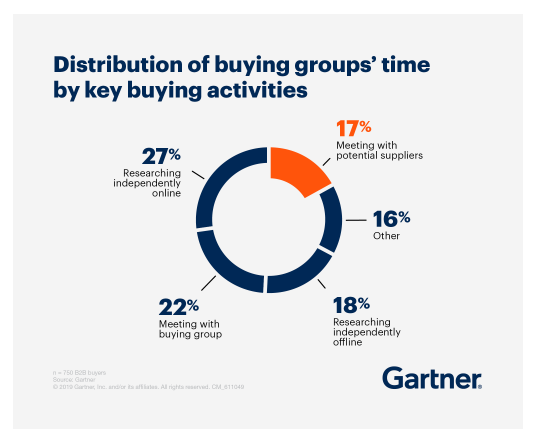
Myth #3: There Are Too Few B2B Influencers Available for My Brand to Do Influencer Marketing
You don’t need many influencers; you just need the right one(s).
B2B influencer marketing is more feasible than many perceive it to be. When you partner with the right voices in a well-structured campaign, individual people can make a difference and change the narrative to your brand’s advantage.
There are likely multiple thought leaders in your industry who create helpful content your target audience relies upon… but they simply aren’t partnering with brands. That doesn’t mean they couldn’t team up with your brand. You simply need to approach them and negotiate terms, including having a well-structured process and agreement. That’s where relying on the expertise and the enriching B2B creators network of an agency like Kingfluencers can set you up for success.
A well-structured campaign includes reinforcing your brand’s key messages across multiple channels, including your owned properties. You can use multiple voices to discuss the challenges your audience faces, so you address multiple factors that impact their decision. Most importantly, you already have B2B influencers… your employees! Which brings us to our next 2 myths.
Myth #4: We’re Working to Build Our Brand’s Digital Influence. There’s No Place for Individual People to Share Our Messages
People want to see authenticity and real people – even B2B buyers. A people-centric approach can make a big difference, particularly as your brand stands out among the overload of bots and obviously automated, impersonal social selling. In particular, the consistent engagement of senior leadership on social media can have numerous benefits for your brand.
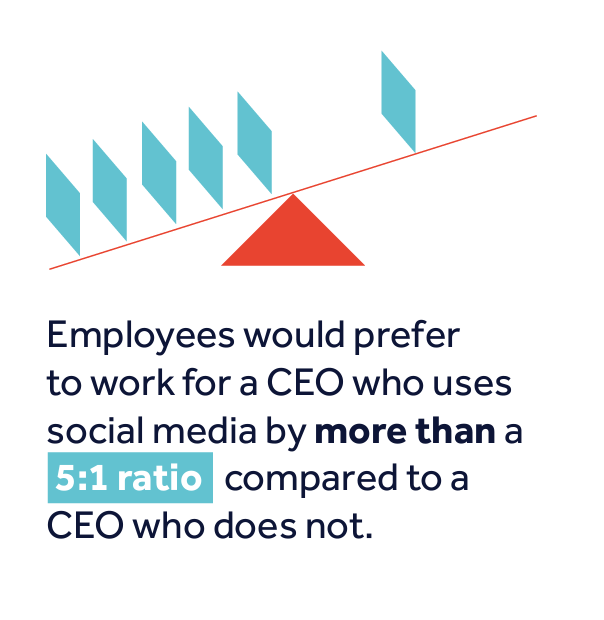
- 56% of professionals stated that a business executive’s presence on social media positively influences their purchase decisions.
- Employees would prefer to work for a CEO who uses social media by more than a 5:1 ratio compared to a CEO who does not.
- 63% said C suit engagement on social media makes a brand more approachable, honest, and trustworthy.
Individual employees working as ambassadors don’t detract from your efforts to build your brand’s digital influence. As employees, their contributions positively enhance your brand’s digital influence, working synergistically. By engaging on social media, employees can provide a behind-the-scenes glimpse, authentically revealing how engaged and happy employees are. In turn, this demonstrates how motivated staff is to develop quality products, provide good service, and remain with the company to deliver consistency.
Myth #5: Employees Must Be Trained! We Can’t Use Our Staff for Influencer Marketing
If an employee is going to be interviewed by the press or speak at a conference, we definitely recommend they are press trained! But many employees can be recruited to help amplify your messages and build digital influence. Employees in various departments can be among your various ambassadors, each adding a specific angle and unique value. Additionally, you can opt to provide comprehensive training to selected staff in order to help them become brand power voices.
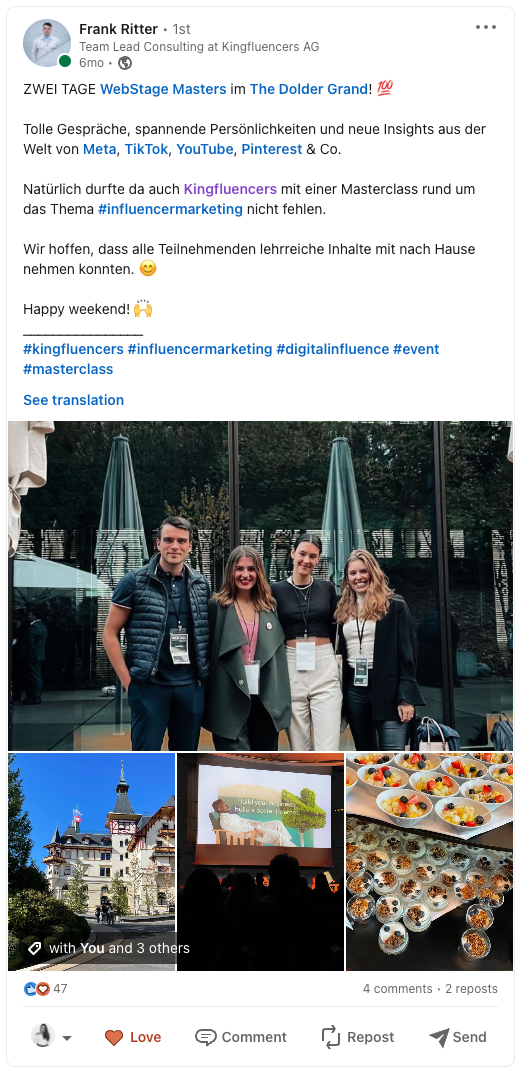
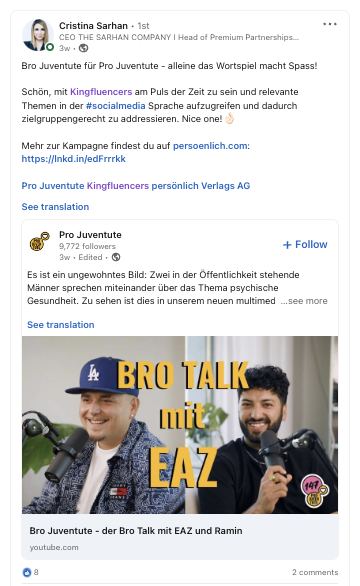
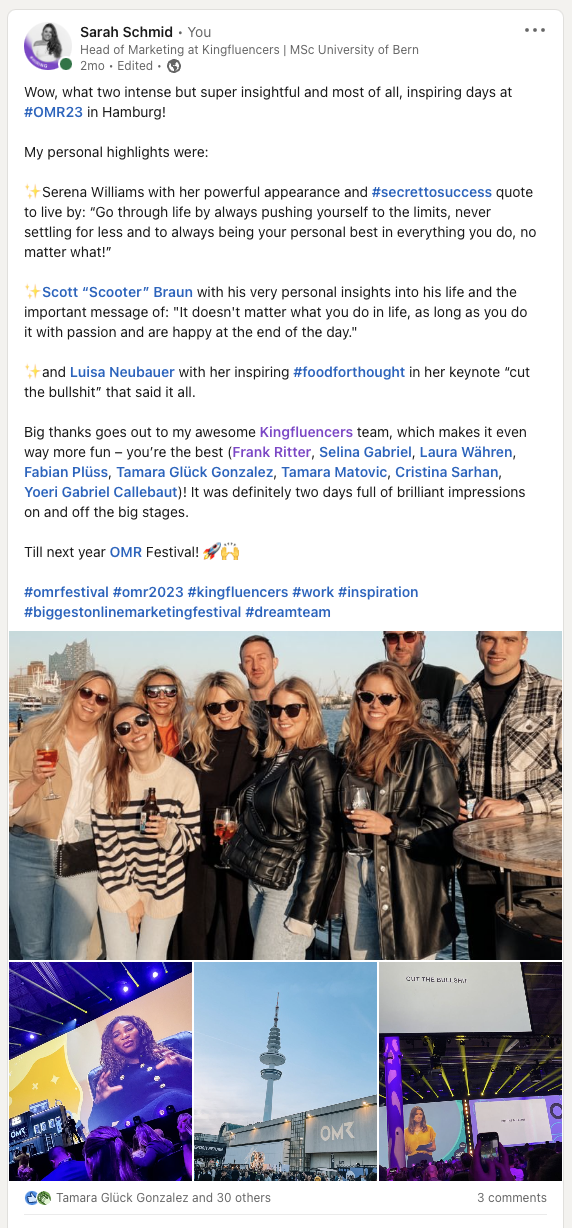
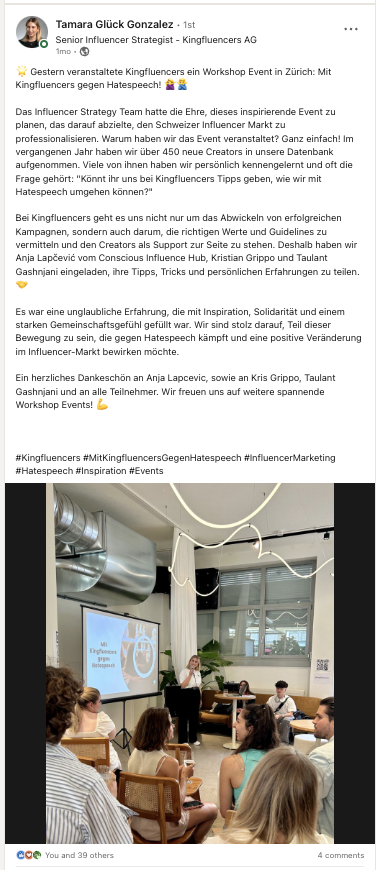
Kingfluencers Helps You Build B2B Digital Influence
Reach out to Kingfluencers and let’s discuss how we can help you:
- Select influencers to reach and engage your target audience
- Negotiate terms and execute well-structured agreements
- Build personal branding campaigns for selected executives and employees
- Measure KPIs and build on the success
Author: Megan Bozman, Owner @Boz Content Marketing
